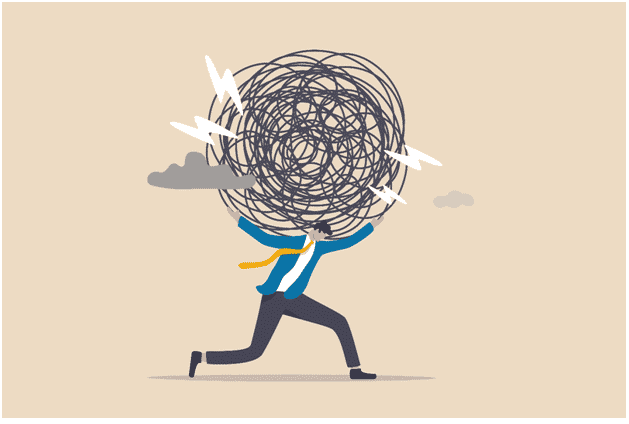According to the National Eating Disorder Association (NEDA), 56 percent of individuals in a study of 2,400 people who were being treated for an eating disorder were also diagnosed with an anxiety disorder. Upon further analysis, it came to light that 54 to 81 percent of people with bulimia nervosa and 48 to 51 percent of people with anorexia nervosa also have some form of anxiety disorder. These figures, tested in clinical settings indicate a strong link between the two types of disorder. Therefore, people who enter a residentialeating disorder treatment program, or a virtual or day treatment one, have demonstrated a clear need for co-occurring treatment plans that can address both types of disorder at the same time.
Even though anxiety disorder is oftentimes considered as one big mental disorder that is only one issue, anxiety disorders can be broken down into subtypes. Understanding the specific subtype of anxiety disorder that a person in an eating disorder treatment program is experiencing helps care providers better aim recovery efforts and therapy plans. Here is a look at the four different types of anxiety that are often associated with eating disorders.
Phobias and Other Irrational Fears
Phobias are a form of anxiety disorder characterized by strong or irrational fear. (Although they may be triggered by a real, negative experience, the term irrational is used here to mean debilitating or otherwise out of proportion fear of the phenomenon in question.) Phobic anxiety involves having an excessive fear of something. Common phobias include public speaking, heights, or insects. For those in eating disorder treatment programs, phobias are often associated with consuming specific foods or even the entire act of eating itself. A good example of another form of phobia often relative to eating disorders is how someone who is suffering from ARFID may have had a negative with a particular kind of food they have choked on or gotten food poisoning from in the past.
Social Anxiety Disorder
Social anxiety is defined as having a fear of social interactions or social settings. Social anxiety is one of the more prevalent forms of anxiety for people who have an eating disorder because the anxiety is often driven by a fear of being evaluated or negatively assessed by others. These kinds of issues are often addressed during residential and day treatment programs for eating disorders. Social anxiety is often linked to self-esteem. People with eating disorders often if not always have body image distortions and low self-esteem, so they may feel anxious that they are being judged for their weight in social situations, even if this is not true. Treatment methods like DBT are often applied to help alleviate social anxiety disorders.
Panic Disorder
Panic disorder is a form of anxiety that causes instances of extreme fear or panic in individuals. These often have no specific trigger, resulting in what is known as a panic attack. A panic attack is a major episode in which an individual will have such acute anxiety that it generates physical symptoms, such as shaking, passing out, nausea, sweating ad inability to make any action. Panic attacks can trigger binge eating episodes and other disordered eating behaviors as a coping mechanism, often causing individuals with an eating disorder to react in a certain way to try to soothe the symptoms of an attack. For instance, someone who is being treated for bulimia nervosamight be taught new coping mechanisms to deal with panic other than binging and purging. Meditation and other mindfulness activities are often taught during treatment. In some cases, medication might be prescribed to help with acute panic attacks, although no medication is designed for specific eating disorders.
Obsessive-Compulsive Disorder
Obsessive-compulsive disorder (OCD) is a form of anxiety disorder that causes people to suffer from recurring ideas and obsessions. These recurring obsessive ideas or thoughts can drive an individual to act compulsively. For instance, an individual may have recurring thoughts about burning off calories after consuming a meal so they will exercise incessantly to a degree that would be outside of typical behavior.
OCD is a serious psychiatric condition – if it is present in a person who also has an eating disorder, the treatment plan must coordinate the methods used to treat each. OCD medication is available to help control the obsessive thoughts as well as the compulsive behaviors that come with them. In combination with focused talk therapy methodologies such as CBT, both OCD and related compulsive eating behaviors can be controlled. Therefore, a mix of therapeutic and psychiatric treatment plans has shown positive outcomes in many cases.
Simultaneous Treatment of Anxiety Disorders and Eating Disorders
By examining the underlying anxiety disorder an individual is dealing with during an eating disorder treatment program, it is easier to understand where some of the attention needs to be focused during therapy. Eating disorders treatment facilities rarely provide treatment for only the disordered eating behaviors; the importance of a full continuum of care is well-understood and implemented in virtually every ED treatment plan.
We’ve mentioned cognitive behavioral therapy (CBT) and dialectical behavior therapy (DBT) earlier in this essay. They are both mainstays of anxiety treatment as well as treatment for anorexia nervosa, bulimia nervosa, binge eating disorder, and other forms of the eating disorder. Both emphasize understanding how irrational or distorted thinking affects emotion, and how emotion affects behavior. These and other methods are proven through clinical studies and patient reports to aid in recovery from both eating disorders and anxiety disorders.
Any kind f psychiatric treatment benefits from early action. The longer treatment is put off, the more difficult recovery can be. If you or a family member struggle with an anxiety disorder and an eating disorder, reach out to an eating disorder treatment professional for assistance. Gaining admission to an eating disorder treatment center may seem daunting, but it’s the first step to a happier and healthier life.












